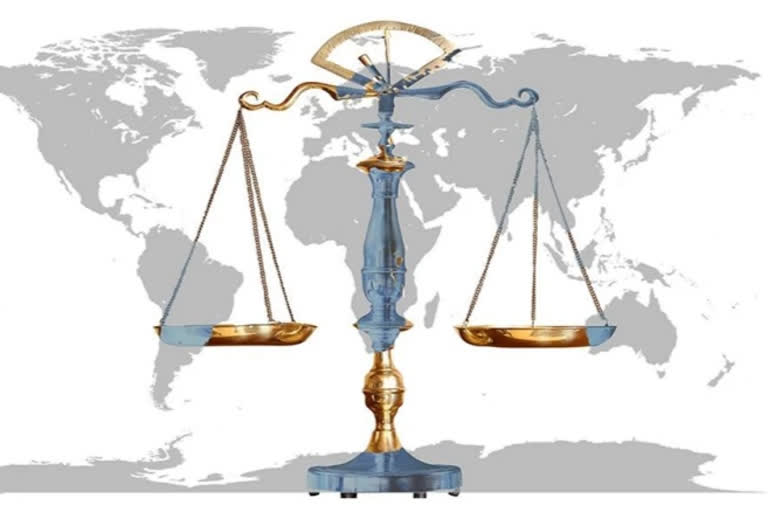New Delhi: The Supreme Court Thursday said its powers under Article 136 of the Constitution are very wide but it does not interfere in criminal appeals with the concurrent findings of fact except in exceptional circumstances.
Article 136 deals with the extraordinary power of the apex court to grant special leave in cases. A bench of Justices Surya Kant and J B Pardiwala said the apex court can interfere with the findings of fact recorded by the High Court if it has acted "perversely or otherwise improperly".
"The powers of this Court under Article 136 of the Constitution are very wide but in criminal appeals, this Court does not interfere with the concurrent findings of fact save in exceptional circumstances. "It is open to this Court to invoke the power under Article 136 only in very exceptional circumstances as and when a question of law of general public importance arises or a decision shocks the conscience of the Court," the bench said.
The top court said when the evidence adduced by the prosecution falls short of the test of reliability and acceptability, it is highly unsafe to act upon it. "Where the appreciation of evidence and finding is vitiated by any error of law of procedure or found contrary to the principles of natural justice, errors of record and misreading of the evidence, or where the conclusions of the High Court are manifestly perverse and unsupportable from the evidence on record," the bench said.
Also read: SC dismissed plea seeking probe into anti-Naxal operation 2009
The apex court's observation came while dismissing an appeal filed by a convict accused of the offence of murder punishable under Section 302 of the Indian Penal Code challenging the order of the Bombay High Court which junked his plea. The top court also said that appreciation of ocular evidence is a hard task and there is no fixed or straight-jacket formula for appreciation of the ocular evidence.
"While appreciating the evidence of a witness, the approach must be whether the evidence of the witness read as a whole appears to have a ring of truth," the bench said. The apex court said once that impression is formed, it is undoubtedly necessary for the court to scrutinise the evidence more particularly keeping in view the deficiencies, drawbacks, and infirmities pointed out in the evidence as a whole and evaluate them.
"When eye-witness is examined at length it is quite possible for him to make some discrepancies. But courts should bear in mind that it is only when discrepancies in the evidence of a witness are so incompatible with the credibility of his version that the court is justified in jettisoning his evidence.
"Minor discrepancies on trivial matters not touching the core of the case, hyper-technical approach by taking sentences torn out of context here or there from the evidence, attaching importance to some technical error committed by the investigating officer not going to the root of the matter would not ordinarily permit rejection of the evidence as a whole," the bench said. (PTI)


